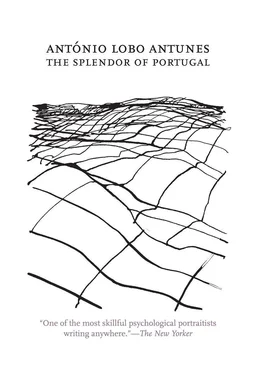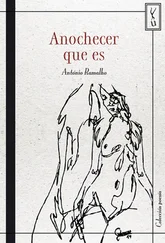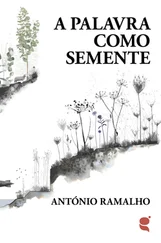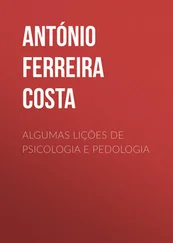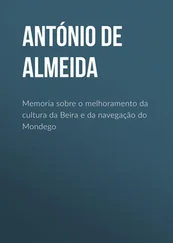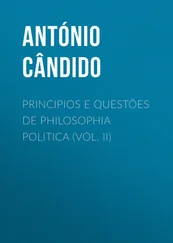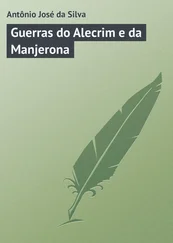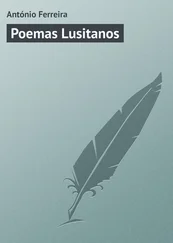António Antunes - The Splendor of Portugal
Здесь есть возможность читать онлайн «António Antunes - The Splendor of Portugal» весь текст электронной книги совершенно бесплатно (целиком полную версию без сокращений). В некоторых случаях можно слушать аудио, скачать через торрент в формате fb2 и присутствует краткое содержание. Год выпуска: 2011, Издательство: Dalkey Archive Press, Жанр: Современная проза, на английском языке. Описание произведения, (предисловие) а так же отзывы посетителей доступны на портале библиотеки ЛибКат.
- Название:The Splendor of Portugal
- Автор:
- Издательство:Dalkey Archive Press
- Жанр:
- Год:2011
- ISBN:нет данных
- Рейтинг книги:3 / 5. Голосов: 1
-
Избранное:Добавить в избранное
- Отзывы:
-
Ваша оценка:
- 60
- 1
- 2
- 3
- 4
- 5
The Splendor of Portugal: краткое содержание, описание и аннотация
Предлагаем к чтению аннотацию, описание, краткое содержание или предисловие (зависит от того, что написал сам автор книги «The Splendor of Portugal»). Если вы не нашли необходимую информацию о книге — напишите в комментариях, мы постараемся отыскать её.
The Splendor of Portugal — читать онлайн бесплатно полную книгу (весь текст) целиком
Ниже представлен текст книги, разбитый по страницам. Система сохранения места последней прочитанной страницы, позволяет с удобством читать онлайн бесплатно книгу «The Splendor of Portugal», без необходимости каждый раз заново искать на чём Вы остановились. Поставьте закладку, и сможете в любой момент перейти на страницу, на которой закончили чтение.
Интервал:
Закладка:
Carlos Clarisse Rui
there are times when I think I should have, could have, that it would have been easy to have had a different life, even here in Africa where we came
my father used to explain
not in search of money or power but black people with no money or power at all who could give us the illusion of having money and power which in fact we wouldn’t have even if we did have it since the people in Lisbon only tolerated us, nothing more, they looked down on us the same way we looked down on the people who worked for us and thus in a way we were their blacks, just like the blacks have their own blacks, and those blacks have their blacks and so on going down from one level to the next to the absolute depths of disease and misery, cripples, lepers, the slaves of slaves, dogs, there are times when I think that my children hate me, just as my husband hated me, because the sound of the desk knocking against the wall was louder than the peacocks, the clock, the generator, Carlos hiding up in the golden rain tree throwing rocks at the jeep, the police chief running toward him, the smell of azaleas overpowering the smell of the sunflowers, the corn, the freshly washed sheets, the lavender, the starch
“Piece of shit mulatto piece of shit mulatto”
what we came in search of in Africa wasn’t money or power, the machine guns on the Corimba highway, the first burst of shots, a pause, the second burst of shots, a pause, the third burst of shots, a pause, and now a few scattered shots from a pistol, the backhoes working to dump in a layer of dirt, the police chief shaking Carlos by the neck at the base of the golden rain tree, his mouth insulting me, forming the words with his lips then shutting his mouth, but not just with his mouth, with his eyes as well, my blouse low-cut like Clarisse’s blouses, my skirt even tighter than hers, the window to my husband’s bedroom open
“Say it I dare you say that you aren’t scared say it”
my son silent, it was the peacocks who said it not my son, the police chief grabbed him so he could shake him some more, Carlos’s legs slack and dangling, his head, his buttocks, something different about his eyebrows, a bruise, a red splotch on his face, and yet his mouth was still closed, his mouth didn’t tremble the way his eyes did, the pickup trucks empty on their way back except for a lone sandal, a crutch, and a ring, but the people driving us weren’t white, they were Angolan, when we finish eating dinner and Damião brings out the champagne I’m going to ask Clarisse and Carlos to take care of Rui, to never leave him alone, to never put him in a home, Lena who was raised in the slums and learned to share her misery evenly, one bucket of water for everyone, one chicken for everyone, Lena understands, poor people understand this better
“Keep your money”
since they’re used to splitting their nothing evenly, they’re able to make nothing into something you can eat, something that can protect you from illness, from the cold
“Keep your money I said keep your money I don’t need your money to be able to take care of Rui”
this African money that in Lisbon is worth less than conch shells or seashells or rusty cans of preserves or ripped up pieces of newspaper, the illusion of money and power, my father used to explain, which we wouldn’t really have even if we did have it, we’d only have blacks who have their own blacks and those blacks have their blacks and so on going down from one level to the next to the absolute depths of disease and misery, cripples, lepers, the slaves of slaves, dogs, those same humble beasts who despite being shot at always come back, the snouts low to the ground, whining, limping, back to the ditches of Corimba, the azaleas lit up, the patio lit up, great big blue canopies, orchids and roses on the table, the bishop, the governor, the police chief, not that one, the one the government appointed before this one and who never even arrested one measly adolescent, lying in his hammock every afternoon in front of the police station swatting away insects with his hand, the smell of the spikenard plants inside the church, the sound of the organ breathing in between the notes
“Why Isilda?”
the sacristan annoyed with my fiancée who couldn’t stop fidgeting out of shyness, howling into his ear
“Face the front and stand still sir”
the wives of my father’s friends pointing at Amadeu whispering into their gloves their fans the veils of their hats, like birds on the river staring at me with their cruel little pupils, swallowing their syllables whole, like fish
“Pregnant I’d bet my niece’s dowry that she’s pregnant”
me glaring at them, never ceasing to smile, capable of knocking them into the ditches in Corimba
baobab trees, they’ve even cut down the baobab trees
watching them topple over in a whirlwind of skirts, fox-fur stoles, purses, little pillboxes filled with their bladder-medicine pills, capable of covering them with a layer of quicklime, a layer of dirt, and even after that you’d still be able to hear their shrill voices, persistent but getting weaker and weaker, fortunately getting weaker still, now just a hiss
“Pregnant I’d bet my niece’s dowry that she’s pregnant”
dozens and dozens of cars in front of the house, my father told the foremen to open the company store, dried fish, beer, flour, tobacco, which of course they noted down so they could take it out of their salary, with an additional surcharge since it was after six o’clock, there are times when I start to wonder if, as the communists in Luanda claim, or the UNITA leaders, those hideous monkeys from the south, pillaging our lands in Cacuaco, those thieves, thieves, I start to wonder if we really treated them unjustly
and thus, in a certain way, my father used to explain, we were other peoples’ blacks just as the blacks had their blacks and those blacks had their own blacks as well and so on going down from one level to the next down to the absolute depths
and when I think about justice and injustice I remember that when I was a child as soon as I got a stain on my clothes I’d immediately wash it with so much water and so much soap that I could no longer tell whether it was the original stain or my attempt at washing it off that was discoloring the fabric, and when the stain and the soapy water dried it looked like they were both still there, one on top of the other, two discolored aureoles that infuriated my mother, who would grab a hairbrush to hit me with the handle
“Hold out your hand Isilda”
I don’t know if she was mad about the little stain or the big one, me fighting back tears with my hand held out, me waiting in the overgrown grass with the other prisoners, I wasn’t afraid that they’d hit me, I was afraid of the face they’d make as they hit me, that they’d leave, that they’d leave me alone on the plantation, the garden lit up, the porch lit up, the azaleas and the golden rain tree lit up, the great big blue canopies, the Belgian man’s china and silverware, the Christmas tree, the Christmas Eve dinner, chairs and more chairs, me left all alone, except for the owls and the nocturnal insects, at the table decorated with orchids and roses, me wearing the dress and hat from the attic surrounded by admiring hordes of the dead, surrounded by the prisoners who waited with me, the soldiers’ pickup trucks, the mutts with their snouts low to the ground, whining, limping
I’m not afraid that they’ll kill me I’m afraid of the face they’ll make as they kill me, afraid that they won’t like me, of the expression on my son Rui’s face as he raises the pellet gun and lines me up in the sights, his face disappearing behind the rifle, firing, and it wasn’t a feeling of loneliness, it wasn’t that I was far away from them, it wasn’t pain, it was that my son didn’t like me, if I tugged at my mother’s bedsheets in the middle of the night
Читать дальшеИнтервал:
Закладка:
Похожие книги на «The Splendor of Portugal»
Представляем Вашему вниманию похожие книги на «The Splendor of Portugal» списком для выбора. Мы отобрали схожую по названию и смыслу литературу в надежде предоставить читателям больше вариантов отыскать новые, интересные, ещё непрочитанные произведения.
Обсуждение, отзывы о книге «The Splendor of Portugal» и просто собственные мнения читателей. Оставьте ваши комментарии, напишите, что Вы думаете о произведении, его смысле или главных героях. Укажите что конкретно понравилось, а что нет, и почему Вы так считаете.
